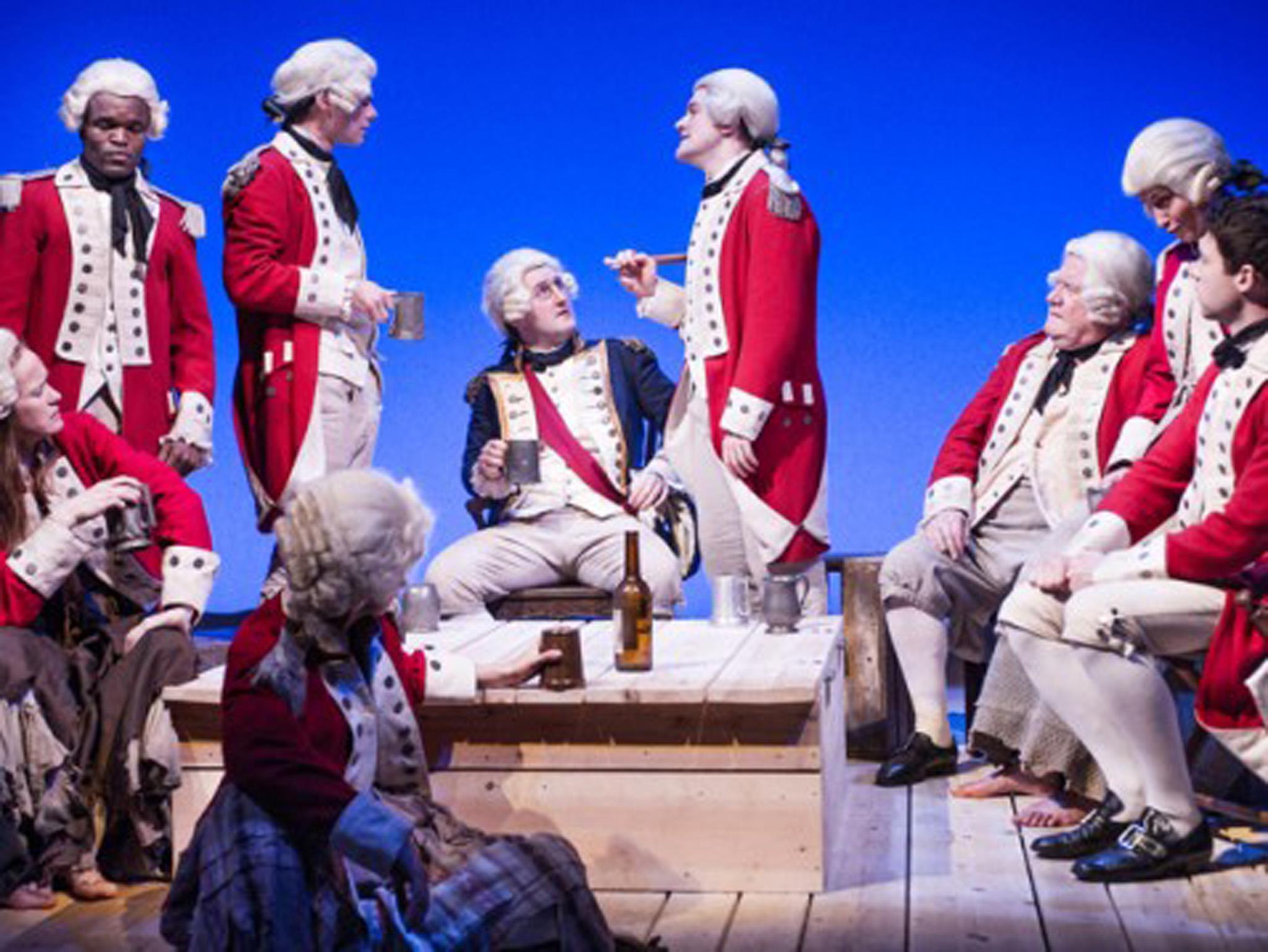
This year marks the twenty-fifth anniversary of the premiere at the Royal Court of Our Country's Good, the contemporary classic by Timberlake Wertenbaker.
Adapted from Thomas Keneally's novel The Playmaker, which is itself based on historical fact, the drama tells the story of how, in a much-contested civilising experiment and in celebration of the King's birthday in June 1789, convicts were allowed to rehearse and perform in a production of Farquhar's The Recruiting Officer, the first play ever to be staged in the penal colony of Australia.
In 1988, Our Country's Good – which makes a trenchant and uplifting case for the transformative power of theatre – was widely regarded as an attack on the philistine Thatcherite ethos of the day. Now Max Stafford-Clark, its original director, has mounted this glowingly persuasive and beautifully cast revival in a new era of swingeing, lamentably short-sighted cuts. His company, Out of Joint, had 25% of its subsidy slashed in 2011
To raise money, Stafford-Clark even opened up rehearsals of Our Country's Good to a paying public. This was a shrewd move – not only newsworthy but aptly self-reflexive, given that the play lets us eavesdrop on the preparations for The Recruiting Officer. And it can't help but bathe in additional irony the great episode – electrifyingly well-played here – where a couple of the penal colony's most reactionary officers invade a rehearsal and inhibit and humiliate the prisoners only to be defied by two of the convicts who boldly persist in an elegant Farquhar duologue.
Wertenbaker's play is unashamedly idealistic but it's not sentimental. As Dominic Thornburn's performance finely traces, the director, Second Lieutenant Ralph Clark, starts off as a prim, guarded type, primarily motivated by ambition, and only gradually thaws as falls in love and as the project struggles to fight the institutional injustice that lands several of the cast in chains and one of the leading ladies under threat of hanging.
The uphill battle is often very funny. Pointed doubling, executed with tremendous vigour here, is built into the nature of the play, with the same actors portraying both the oppressors and the oppressed. It emphasises how many of these unfortunates, dumped on the other side of the world for petty crimes, were paying the price for being assigned the wrong costume (so to speak) at birth and how a theatrical production can offer a microcosmic image of liberating self-transcendence and true community. Warmly recommended.
Subscribe to Independent Premium to bookmark this article
Want to bookmark your favourite articles and stories to read or reference later? Start your Independent Premium subscription today.

Join our commenting forum
Join thought-provoking conversations, follow other Independent readers and see their replies